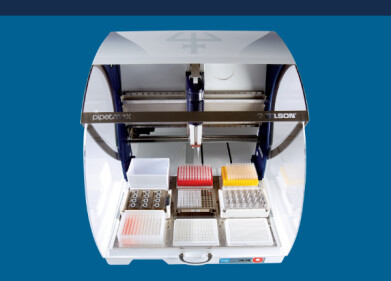Laboratory Products
Does Coronavirus Affect Testosterone?
Oct 28 2020
A new study published by the Taylor & Francis Group has offered insight into why male patients are more at risk of being hospitalised due to COVID-19, with lead author Selahittin Çayan explaining the disease may reduce testosterone to dangerously low levels. The study revealed more than half of male patients diagnosed with COVID-19 studied suffered from lower than normal testosterone levels. Çayan, a Professor of Urology at the University of Mersin, says the link could help explain why males are more likely to be admitted to intensive care units (ICUs).
Testosterone deficiencies recorded in 51.1% of male patients
The study saw participants divided into three categories – symptomatic patients admitted to hospital, symptomatic patients admitted to ICU and asymptomatic patients. The link between the severity of COVID-19 symptoms and lower than normal testosterone levels was significant, with the team recording deficiencies in 51.1% of male patients.
“In our study, the mean total testosterone decreased, as the severity of the COVID-19 increased,” reads the report. "The patients who died, had significantly lower mean total testosterone than the patients who were alive.”
Experts call for testosterone based treatments
It’s the first study to confirm COVID-19 significantly depletes testosterone levels and could help explain why prognosis varies so significantly between men and women. The findings were published in the peer-reviewed journal The Aging Male, with Çayan saying the results could be used to develop testosterone-based treatments that minimise the risk of ICU admission for male patients.
“Testosterone is associated with the immune system of respiratory organs, and low levels of testosterone might increase the risk of respiratory infections. Low testosterone is also associated with infection-related hospitalisation and all-cause mortality in male in ICU patients, so testosterone treatment may also have benefits beyond improving outcomes for COVID-19,” explains Çayan.
Moving forward, Çayan is advocating for testosterone level testing for male patients diagnosed with COVID-19. He asserts that for men with low levels of the hormone, testosterone supplements could improve symptoms and reduce the risk of ICU admission. The team also hope to explore the role of ACE2, an enzyme that attaches to the membranes of intestinal cells and could affect testosterone levels.
Want to know more about the latest scientific breakthroughs? ‘Updated Computer Program for Chemical Thermodynamic and Energy Release Evaluation’ introduces CHETAH 11.0, the next generation of predictive tool featuring new capabilities such as NASA Lewis chemical equilibria calculations.
Digital Edition
ILM 49.5 July
July 2024
Chromatography Articles - Understanding PFAS: Analysis and Implications Mass Spectrometry & Spectroscopy Articles - MS detection of Alzheimer’s blood-based biomarkers LIMS - Essent...
View all digital editions
Events
ACS National Meeting - Fall 2024
Aug 18 2024 Denver, CO, USA
Aug 25 2024 Copenhagen, Denmark
Aug 28 2024 Phnom Penh, Cambodia
Sep 04 2024 Chiba, Tokyo, Japan
Sep 04 2024 University of Warwick, Coventry, UK





24_06.jpg)












